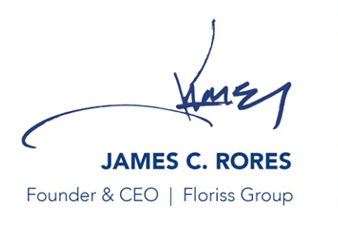Recently, I was helping a client come to terms with the difference between micromanaging and closely managing her team.
As the leader of her organization, she had very clear and distinct goals for growth. The difference was that these were goals the organization had never attempted. They were the kind of goals that inspired fear, uncertainty, and doubt in some team members, as much as they motivated others.
Success would require everyone to step up, expand their potential, and exceed their personal best.
Raising The Bar
As a leader, my client rightfully felt an obligation to do more than simply set the strategy. She realized she would have to get her hands dirty. She would have to participate in every level of her team’s execution. The question she asked in advance was, “How do I manage my team at this level of detail without micromanaging them? I can’t afford to demotivate them.”
The question I asked in return was, “Do you trust your people?”
When you micromanage a team, you tell your people that you don’t trust them. On the other hand, by closely managing a team, you communicate your desire to do whatever it takes to ensure their success.
In most sales and revenue organizations, accountability is wielded as a carrot or a stick. Team members are held accountable only for the outcomes they create, which ultimately fosters a culture of fear.
Rather than focus on how they can improve, team members focus on how they can avoid accountability. They look for ways to hide by not sharing data that would expose opportunities for improvement. And they can attempt to prove their worth by exaggerating accomplishments. In extreme cases, they will also lie or mislead customers and managers.
Leaders who micromanage their teams, foster complacency among their ranks. They slow or stop innovation and build resistance to change.
There is, however, a level of accountability that is productive. One we most often associate with leaders who choose to ‘closely manage’ their teams.
Closely managed teams are trained to focus on the decisions they make and the actions they take — ‘leading indicators’ of the outcomes they create (i.e., D x A = O). This is an evidence-based accountability model that rewards team members for their commitment to improving inputs and outputs.
Leaders who closely manage their teams foster a high level of curiosity from their people, and a performance mindset that is constantly anticipating, learning, and adjusting to change.
Where Do You Stand?
Are you more likely to micromanage or closely manage your teams? As a leader, how do you perform under stress? How does your approach impact your people? Where can you improve? How does your team perform when they’re under pressure? Where can they improve?
There is a powerful self-assessment that can help you learn more about your performance mindset and understand the insecurities that influence how you choose to lead and manage your teams. It’s called the Identity Fear Quotient or IFQ.
In just 10 minutes, you gain validated insights into the ‘why’ behind your personality and how you choose to behave in difficult or demanding situations.
If you’re curious, reach out to learn more. Or click this link to take the IFQ for free.
Don’t miss an opportunity to test the limits of your potential, to set bigger goals, and inspire your team to over achieve.
Together,











